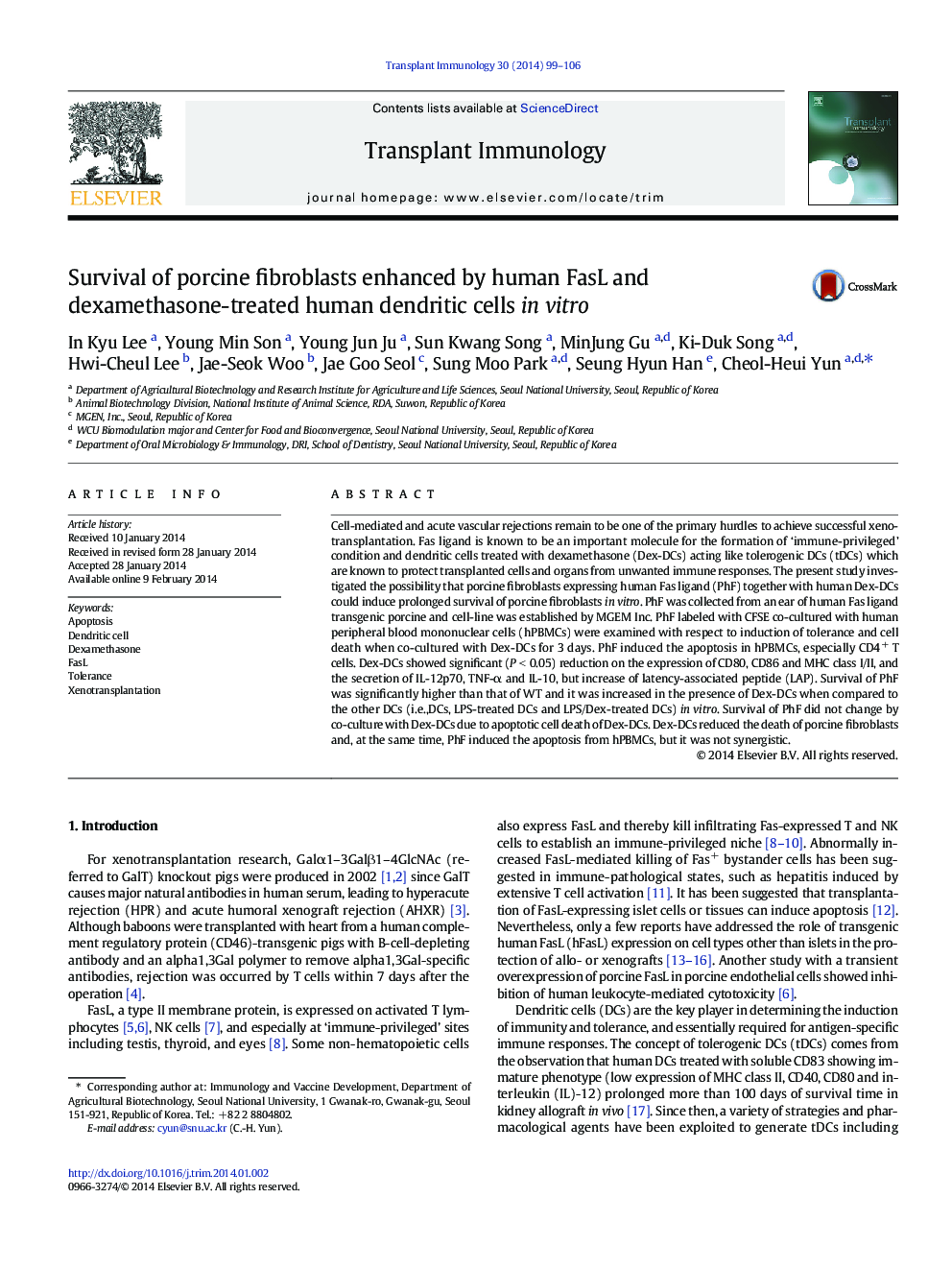| Article ID | Journal | Published Year | Pages | File Type |
|---|---|---|---|---|
| 3392123 | Transplant Immunology | 2014 | 8 Pages |
•Porcine fibroblasts expressing human Fas ligand (PhF) induced apoptosis of human CD4+ T cells.•Dexamethasone induced differentiation of human monocytes into tolerogenic dendritic cells (Dex-DCs) secreting transforming growth factor β.•Both PhF and Dex-DCs reduced apoptosis of human peripheral blood mononuclear cells (PBMCs).
Cell-mediated and acute vascular rejections remain to be one of the primary hurdles to achieve successful xenotransplantation. Fas ligand is known to be an important molecule for the formation of ‘immune-privileged’ condition and dendritic cells treated with dexamethasone (Dex-DCs) acting like tolerogenic DCs (tDCs) which are known to protect transplanted cells and organs from unwanted immune responses. The present study investigated the possibility that porcine fibroblasts expressing human Fas ligand (PhF) together with human Dex-DCs could induce prolonged survival of porcine fibroblasts in vitro. PhF was collected from an ear of human Fas ligand transgenic porcine and cell-line was established by MGEM Inc. PhF labeled with CFSE co-cultured with human peripheral blood mononuclear cells (hPBMCs) were examined with respect to induction of tolerance and cell death when co-cultured with Dex-DCs for 3 days. PhF induced the apoptosis in hPBMCs, especially CD4+ T cells. Dex-DCs showed significant (P < 0.05) reduction on the expression of CD80, CD86 and MHC class I/II, and the secretion of IL-12p70, TNF-α and IL-10, but increase of latency-associated peptide (LAP). Survival of PhF was significantly higher than that of WT and it was increased in the presence of Dex-DCs when compared to the other DCs (i.e.,DCs, LPS-treated DCs and LPS/Dex-treated DCs) in vitro. Survival of PhF did not change by co-culture with Dex-DCs due to apoptotic cell death of Dex-DCs. Dex-DCs reduced the death of porcine fibroblasts and, at the same time, PhF induced the apoptosis from hPBMCs, but it was not synergistic.
